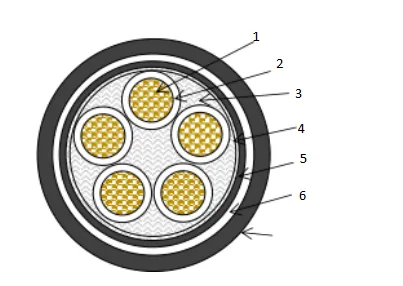Nov . 04, 2024 19:43 Back to list
Severe Operations Management for High-Demand Situations and Critical Environments
Understanding Severe Service in Industrial Applications
In today's rapidly evolving industrial landscape, the term severe service has gained significant traction. It refers to the operational conditions encountered by equipment or systems that demand high reliability and robust performance. Industries ranging from oil and gas to chemical processing frequently face challenges associated with severe service. This article seeks to delve into the concept of severe service, its implications, and the importance of selecting appropriate equipment designed to withstand such demanding environments.
Defining Severe Service
Severe service is characterized by intense operational conditions that can include extreme temperatures, high pressures, corrosive environments, and abrasive materials. Equipment operating under these circumstances typically experiences increased wear and tear, leading to a heightened risk of failure. As industries strive to optimize efficiency and minimize downtime, understanding the nuances of severe service becomes imperative.
Common Applications of Severe Service
Certain sectors are more prone to severe service conditions. For example, in the oil and gas industry, equipment is often exposed to high-pressure pipelines and corrosive substances. Similarly, manufacturing processes that involve the handling of abrasive materials, such as cement or minerals, require equipment that can endure constant stress and wear. The power generation sector also encounters severe conditions, especially in fossil fuel-fired plants where boilers operate at high temperatures and pressures.
Challenges Associated with Severe Service
The challenges posed by severe service can be multifaceted
. One of the most significant issues is equipment failure. When machinery fails in a severe service environment, the consequences can be dire, leading to safety hazards, environmental spills, and costly downtime. Furthermore, the maintenance of critical equipment becomes more complex and requires specialized knowledge and tools, increasing operational costs.Another challenge is the need for stringent regulatory compliance. Industries facing severe service conditions often operate under strict regulations to ensure safety and environmental protection. Non-compliance can result in hefty fines and legal repercussions, making it crucial for organizations to prioritize reliability and efficiency in their operations.
severe service

Selecting Equipment for Severe Service
Choosing the right equipment for severe service applications is critical. It is essential to assess the specific conditions the equipment will face, including temperature extremes, pressure levels, and the chemical properties of the materials being handled. Manufacturers offer specialized products designed to withstand these harsh environments, including valves, pumps, and other critical components.
For instance, severe service valves are engineered with materials that resist corrosion and wear while also featuring robust designs to handle fluctuating pressures. Using high-performance materials, such as stainless steel or advanced alloys, can significantly enhance the lifespan of these components.
The Role of Technology
Advancements in technology play an essential role in managing severe service conditions. The integration of automated monitoring systems helps track equipment performance in real-time, allowing for predictive maintenance and minimizing unexpected failures. Additionally, cutting-edge materials science has led to the development of more durable and resilient components, capable of withstanding the rigors of severe service environments.
Conclusion
In summary, understanding severe service is vital for industries that operate under challenging conditions. The emphasis on selecting appropriate equipment and leveraging technological advancements can significantly mitigate the risks associated with severe service. As industries continue to evolve, the focus on reliability, safety, and compliance will only intensify. By prioritizing these elements, organizations can ensure that they not only meet their operational demands but also foster a culture of safety and excellence in their practices.
Overall, the quest for resilience in severe service applications is ongoing, but with careful planning and investment in the right technologies, industries can navigate the challenges of today and secure a more sustainable and efficient future.
Share